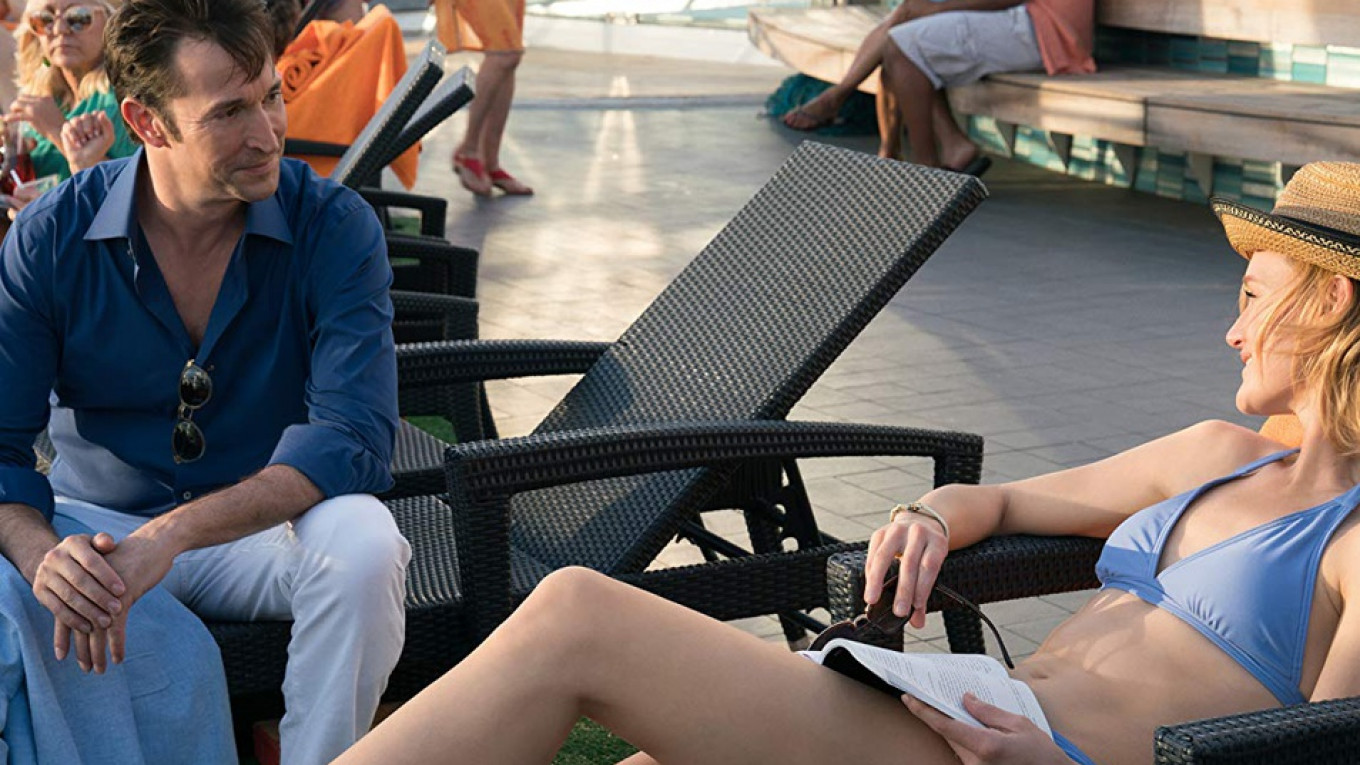I want to give Matthew Weiner, the award-winning creator of Mad Men the benefit of doubt on “The Romanoffs.” In this, I seem to differ from my fellow Romanov junkies: a global fandom lurking on the margins of Facebook. I don’t spend a lot of time worrying about preserving the dignity of the memory of last dynastic family – that seems quite safe – but after watching the first two episodes of “The Romanoffs,” I am a bit baffled as to what Weiner is trying to achieve with this new series, and, indeed, why he chose the Romanovs to help him do it.
I scanned the first two episodes for cultural clues and found them liberally scattered throughout the first episode, “The Violet Hour,” which takes place in a huge (and I mean cavernous) apartment in Paris, inhabited by the elderly but elegant and well-preserved Anastasia La Charnay. Anastasia, (confusingly for us Russia types given the wrong diminutive of “Anushka”) inherited the apartment in a direct line from several illustrious Grand Ducal antecedents. Anastasia spends her days smoking, playing with her little lapdog, and being rude to the parade of caregivers her American nephew Greg (Aaron Eckhart) arranges for her. While Greg seems to have genuine affection for his aunt, his more aspirational girlfriend Sophie is clearly only in it for the cavernous apartment.
Marthe Keller as Anushka steals the entire episode in not one, but two languages, hurling racist insults on her caregivers and outlining her Romanov ancestry in both French and English. Was this Weiner’s nod to Tolstoy, I wondered? Or was he channeling Pushkin in the tale of a manipulative old woman of property, an ambitious young man, and the helpless “companion” caught between them? The lapdog necessitated a moment’s consideration of Chekhov, and I spent more than a few minutes wondering where Weiner learned of the perennial Soviet obsession with “kvartirny vopros” (apartment question)? And then I worried for about 45 minutes that the Fabergé egg Anushka keeps in her apartment was far too large to be the 1897 Imperial Coronation Easter Egg.
The second episode, “The Royal We” offered a subtler, but more immediately recognizable cultural touchstone, and perhaps better clues as to where Weiner may be going with "The Romanoffs."
Dynastic scion Michael Romanoff (Corey Stoll) meets and obsesses over Michelle (Janet Montgomery), while both serve on jury duty for a murder case, which is strikingly similar to Dostoyevsky’s Crime & Punishment. Michael pretends to have doubts about the open-and-shut case to prolong the deliberation and thereby to increase his chances with Michelle.
In his absence, Michael’s wife Shelly braves a Romanoff Family Association meeting they planned to attend together to help Michael feel less “lost” about his marriage and life. This takes place on a monstrously large and very tacky cruise ship sailing around a peninsula that is decidedly not Crimea. In one hilarious scene, Shelly meets the older generation of descendants and their non-Romanov spouses. “I’m Joan,” says the spouse of someone dressed like Nicholas II, “We’re from Sarasota.”
When not identifying themselves as spelling their names with an ending of “-OFF” or “-OV,” these imperial descendants thunderous applaud garishly-dressed Cossack dancers, and faux Hussars using sabers to uncork champagne bottles, and a truly macabre troupe of dwarves playing Rasputin and the Imperial Family. Shelly — and we — are left with the conviction that the entire Romanoff Family Association is a ship of fools.
The storylines in each episode, for the moment anyway, appear to be unconnected, but what Anushka, Greg, and Michael all share is a sense of uprootedness and alienation from a life they sense isn’t the one they are supposed to be living.
Uprootedness was certainly a common enough emotion for the wave of aristocratic White Russians who fled their native land in 1918, but in the case of Weiner’s Romanoffs, sufficient time has passed to render them unsure from what exactly they’ve been uprooted. Anushka confesses that she dreams of Russia every night, only to admit she’s never been to the country. Greg seems completely adrift, content to let the various women in his life make decisions for him. Michael’s rage against the realities of his pedestrian life lead him to attempt a full-on Radion Raskolnikov, which goes horribly wrong.
The opening credits of each episode begin with a highly stylized representation of the murder of the Imperial Family in July 1918 in Ekaterinburg. The international fandom has already expressed their outrage at the historical inaccuracy of Nicholas II and his family being dressed in their yachting gear for their assassination by the Bolsheviks, but I have to think that this original sin of the Russian Revolution will somehow tie everything together. So, I will continue to give Weiner the benefit of the doubt and look forward to meeting more Romanoffs (and Romanovs).
Jennifer Eremeeva writes about Russian history, culture, and cuisine. You can follow her on Twitter @jweremeeva.
A Message from The Moscow Times:
Dear readers,
We are facing unprecedented challenges. Russia's Prosecutor General's Office has designated The Moscow Times as an "undesirable" organization, criminalizing our work and putting our staff at risk of prosecution. This follows our earlier unjust labeling as a "foreign agent."
These actions are direct attempts to silence independent journalism in Russia. The authorities claim our work "discredits the decisions of the Russian leadership." We see things differently: we strive to provide accurate, unbiased reporting on Russia.
We, the journalists of The Moscow Times, refuse to be silenced. But to continue our work, we need your help.
Your support, no matter how small, makes a world of difference. If you can, please support us monthly starting from just $2. It's quick to set up, and every contribution makes a significant impact.
By supporting The Moscow Times, you're defending open, independent journalism in the face of repression. Thank you for standing with us.
Remind me later.







